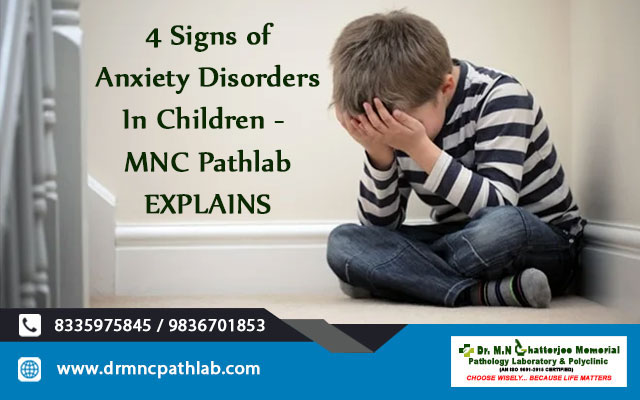It is entirely normal for your children to experience stress on occasion. They may be anxious about an upcoming school test, concerned about who they will sit with at lunch, worried about a change in their routine, or affected by a situation at home.
Younger children, in particular, have a more difficult time expressing how they feel, so they may frequently complain about physical symptoms such as stomachaches or headaches, cling to their parents during drop-off at daycare or school, exhibit excessive hyperactivity, or lash out with temper tantrums- says the expert psychiatrist practicing at a reputable diagnostic center in Hooghly.
However, some children might show symptoms far beyond these random ones. Do you know how to spot your kid’s early signs of anxiety disorder? This blog will explain the most common symptoms that you must not miss at any cost!
A Child Is Prone To Worrying Too Much About Things Going Wrong
Overthinking is common in children with anxiety disorders. Most of the time, their anxious brain is on high alert, looking for anything that appears dangerous.
Irrational fears have an impact on a child’s daily activities. Most children have irrational fears, such as spiders, the dark, and monsters. These are minor concerns for many children but extreme phobias are defined as severe fears that cause tremendous anxiety. It also prevents children from enjoying normal childhood activities.
Anxiety About Separation
Separation anxiety is common during the preschool years. Among the warning signs are:
- Excessive worry or distress when separated from parents
- Separation from a primary caregiver
- Refusal to attend school
- Extreme worries or fear about sleeping away from home
- Clinginess
Selective Mutism
Another type of anxiety is selective mutism, which involves children not speaking in certain situations. For example, a child may speak freely and frequently at home but not at all at school. This condition is most common before the age of ten, as observed by the experts of the diagnostic center in Uttarpara.
Physical Discomfort (Headaches, Stomachaches) At Certain Times
Look for a pattern if a child continues to complain about pain. When does the pain usually appear? Is it whenever they have to take a school test, when they have to perform on stage, speak or read in front of people, or when they have to go somewhere, such as to see a dentist or meet certain friends and family members? All of these things can be triggers for underlying anxiety.
The Final Note
If you notice one or two of these symptoms on a regular basis, don’t be alarmed — everyone has bad days. However, if your child appears to be struggling with multiple signs of anxiety on a daily basis, it may be time to consult with a mental health professional available at MNC Pathlab about the possibility of a chronic anxiety disorder.

